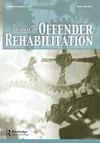缓刑期间的父母:在社区监督期间监护、共同居住和照顾未成年子女
IF 1.1
Q3 SOCIAL WORK
引用次数: 0
摘要
摘要家庭科学和公共卫生学者记录了监禁对个人、儿童、家庭和社区福祉的影响。然而,刑事法律体系中最大的监督形式不是监禁,而是缓刑,对缓刑父母的经历知之甚少。我们分析了153名试用期成年人的访谈,其中68人(44%)报告称自己是未成年子女(18岁以下)的父母 年)。与没有未成年子女的参与者相比,有未成年子女父母年龄更小,更有可能就业。在父母中,42%的人表示有一个或多个未成年子女的监护权,20%的人在采访时与未成年子女住在一起。然而,大多数(82%)的父母表示他们提供了某种形式的照顾或支持。对四个案例研究的定性分析表明,父母在缓刑期间面临的挑战,以及监护权、生活安排以及对未成年儿童的照顾和支持的复杂交叉点。我们发现,为人父母和缓刑是相互关联的,父母身份影响监督体验,缓刑影响为人父母的机会和约束。调查结果表明,与缓刑期父母合作的服务提供者需要关注这些复杂的家庭动态。本文章由计算机程序翻译,如有差异,请以英文原文为准。
Parents on probation: custody, co-residence, and care of minor children during community supervision
Abstract Family science and public health scholars have documented the consequences of incarceration for the well-being of individuals, children, families, and communities. Yet the largest form of supervision in the criminal legal system is not imprisonment, but probation, with little known about the experiences of parents on probation. We analyzed interviews with 153 adults on probation, 68 (44%) of whom reported being parents of minor children (under 18 years). Compared to participants without minor children, parents with minor children were younger and more likely to be employed. Among parents, 42% reported having custody of one or more minor children and 20% lived with their minor children at the time of the interview. Yet, most (82%) parents reported they provided some form of care or support. Qualitative analyses of four case studies show the challenges facing parents on probation and the complex intersection of custody, living arrangements, and care and support for minor children. We find that parenthood and probation are interconnected, with parent status influencing the experience of supervision and probation impacting parenting opportunities and constraints. Findings suggest service providers working with parents on probation need to attend to these complex family dynamics.
求助全文
通过发布文献求助,成功后即可免费获取论文全文。
去求助
来源期刊

Journal of Offender Rehabilitation
SOCIAL WORK-
CiteScore
1.60
自引率
0.00%
发文量
24
期刊介绍:
The Journal of Offender Rehabilitation is a multidisciplinary journal of innovation in research, services and programs in criminal justice and corrections. The journal is an essential professional resource for practitioners, educators and researchers who work with individuals involved in the criminal justice system and study the dynamics of rehabilitation and individual and system change. Original research using qualitative or quantitative methodology, theoretical discussions, evaluations of program outcomes, and state of the science reviews will be considered.
 求助内容:
求助内容: 应助结果提醒方式:
应助结果提醒方式:


